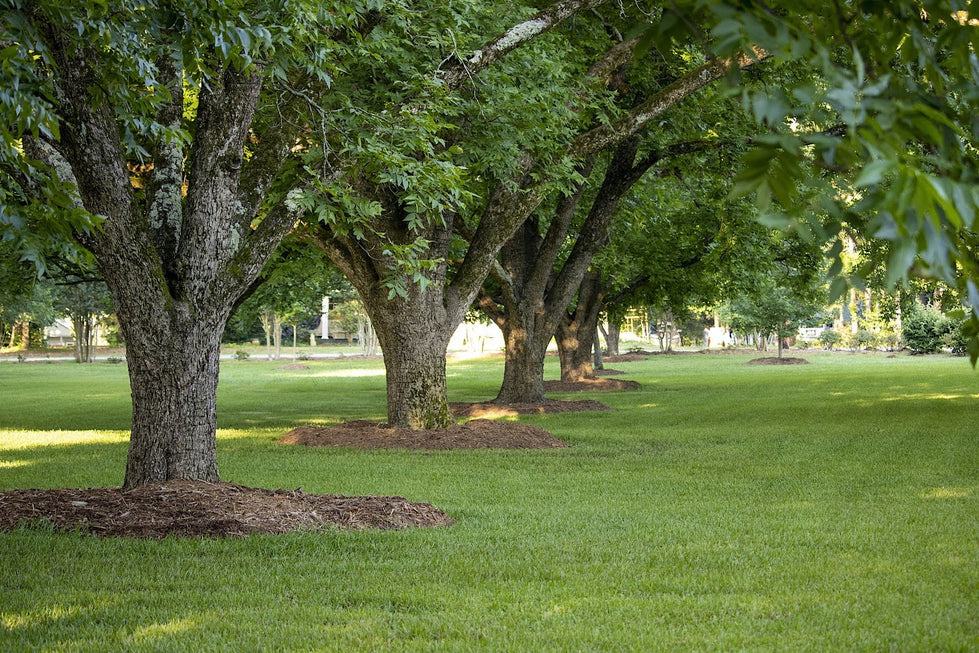
Pecan trees grow very well in Union County. They function well as yard trees, shade trees, and even street trees. They are one of the easiest fruit and nut trees to grow, though they do take many years before bearing fruit (nuts). They can live to 80 years or more – some in downtown Monroe appear to be closer to 100 years old.
The most common question I receive about pecans is ‘my trees never produce a good crop of nuts; how do I fix this?’ If you’d like your pecan trees to produce great nuts reliably, you need to pamper them as you would care for tomato plants in a vegetable garden.- The area under the dripline of the tree should be free of grass and weeds. Instead, it should be mulched with hardwood woodchips 2-3 inches thick.
- You should add compost, ideally under the mulch but on top is ok too, once per year. Compost works it way down into the soil, improving the structure of our clay-heavy soils which improves the soil’s ability to make nutrients and moisture available to tree roots.
- I recommend getting a soil test which is free or cheap. Soil testing kits are available for free at the Union County Agricultural and Event Complex. Also, you can call your local library to see if they have soil testing kits in stock. Then you follow the instructions on the box to take a soil sample, mail it to the lab in Raleigh, and get your results back which tell you how much lime to add, how much fertilizer, etc. for your specific case (you tell them you are growing pecans). Based on the soil test results, you may add lime or synthetic fertilizer in addition to organic compost.
- Are your pecan trees being shaded by other, larger trees? Pecans need full sun to produce a great nut crop.
- You may need to add supplemental water. In 2024 we had an extreme drought from late May to early July, a critical period of nut development. Anyone who didn’t provide supplemental water to their trees during that period lost their nut crop.
- You need to pay attention to insect and disease. Sometimes you can intervene and save your nut crop. Sometimes you cannot, and you can only plan to get in front of the pest next year. We have pecan weevils, June bugs, several kinds of leaf fungal disease, and more. So, you may need to engage in fungicide and insecticide applications. For pecan scab, a sanitation protocol is critical which means you need to pick up clean fallen leaves, sticks and husks and remove them from the property/burn them to reduce infection the following year.
- You may want to have your trees pruned to reduce the length of long, over-extended limbs or else they get heavy with nuts in August and September and snap off, causing large ripping wounds that never heal properly. This introduces decay-causing organisms which shorten its life and reduce its potential nut production.
- You may need to go to battle against squirrels or else they can steal the bulk of your crop. This can mean wrapping the tree trunk in sheet metal so squirrels can’t climb your pecans. Or reducing your squirrel population through lethal means, based on the legality of that action in your jurisdiction.
- Pecans are dichogamous (male and female reproductive parts on the same tree, but that mature at different times, preventing self-pollination). If the person that planted your pecans only used one cultivar, or multiple cultivars that aren't compatible, they wouldn't have a pollinizer to get sufficient pollination for nut production. You may need to plant another, different pecan cultivar.